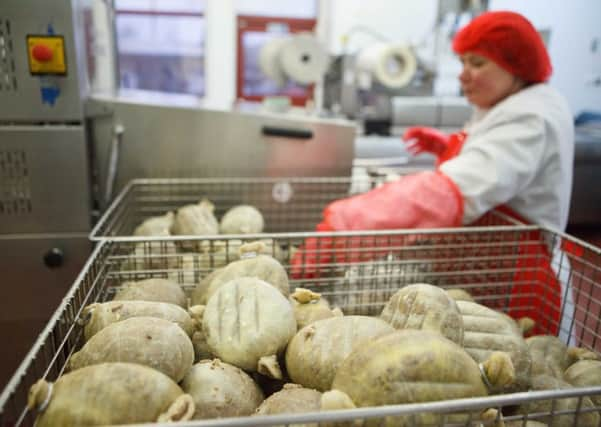Dr Gary Stephenson: Food for thought – firms need help to take advantage of global markets


There are many drivers that encourage food and drink manufacturers to investigate opportunities to export to other countries around the world. This could be due to a saturation of the UK market, an enquiry from a foreign market, or the yearning to try somewhere different.
I work for Devro, which is based in Moodiesburn, North Lanarkshire. We produce sausage casings from collagen, which are used to make sausages in more than 100 countries around the world.
Advertisement
Hide AdAdvertisement
Hide AdThe company initially supplied casings to the UK and Ireland before expanding globally. Our Scottish sites now export about half of total production to more than 60 countries in Europe, Africa, the Americas, Australasia and Asia.


Macsween of Edinburgh has had great success in achieving its ambition for its haggis to be available worldwide. It has identifiedgrowth markets and developed recipes true to its tradition that allows entry into these different markets.
This has paid off – in 2017 Macsween became the first genuine Scottish haggis to reach consumers in Canada in 46 years and Singapore in 21 years. On top of that it has secured a six-month trial in the USA for its vegetarian haggis – rebranded as Scottish veggie crumble.
Another iconic Scottish brand, Edinburgh-based Nairn’s, has had significant export success. It has been baking oat-based products (oatcakes, crackers, biscuits and snacks) since 1896 and now has a very successful gluten-free range.
Nairn’s exports account for around 10 per cent of the company’s turnover and it has seen them rise by around 20 per cent year on year, in line with its export ambitions. Its most successful export markets are the USA, Canada, New Zealand, United Arab Emirates, South Africa and Cyprus.
Companies like Devro, Macsween and Nairn’s have many considerations to take into account. Will your product appeal to consumers in that country, will you need to make any changes, are there special storage conditions, how should you promote your product, what languages need to be on the label? There are also many barriers for food and drink manufacturers to overcome. Aside from tariffs, one of the biggest barriers is regulation. Most food laws are designed to ensure food is safe, and that consumers have the necessary information to make informed choices.
Food laws cover almost everything about the food. This includes where and how it is produced, what is used to make it, what it is called, how you label it, how long the product lasts, how it’s stored and what you pack it in.
In addition, if the product contains ingredients that come from a plant or an animal, there will likely be other regulations, to prevent the spread of animal and plant diseases. This is true for products such as cheese, haggis, potatoes and sausage casings.
Advertisement
Hide AdAdvertisement
Hide AdThere could be restrictions on where the ingredients come from and food manufacturers may need to have the products checked by qualified government officials, such as vets or plant pathologists.
Requirements vary in individual countries. This is why Scottish food and drink companies often export to countries with similar food laws, for example, other countries in the EU, where the only additional restriction is labelling in another language. Or businesses target a market with a common language – such as the USA, Australia, New Zealand or the Caribbean. More adventurous companies step beyond these markets. These businesses often need help from an external agency in the country they are exporting to. This is vital to understand the market, including any relevant laws.
The EU is known across the world for its high standards – when the UK leaves the EU, the Food and Drink Federation supports as close an alignment as possible to maintain the quality, choice and value that consumers demand. The Scottish and UK governments and their agencies provide support to help Scottish food and drink companies export around the world. During these challenging times governments must work together to ensure food and drink manufacturers have the support they need to thrive at home and abroad.
Dr Gary Stephenson, chair of FDF Scotland and director for global external & regulatory affairs at Devro.